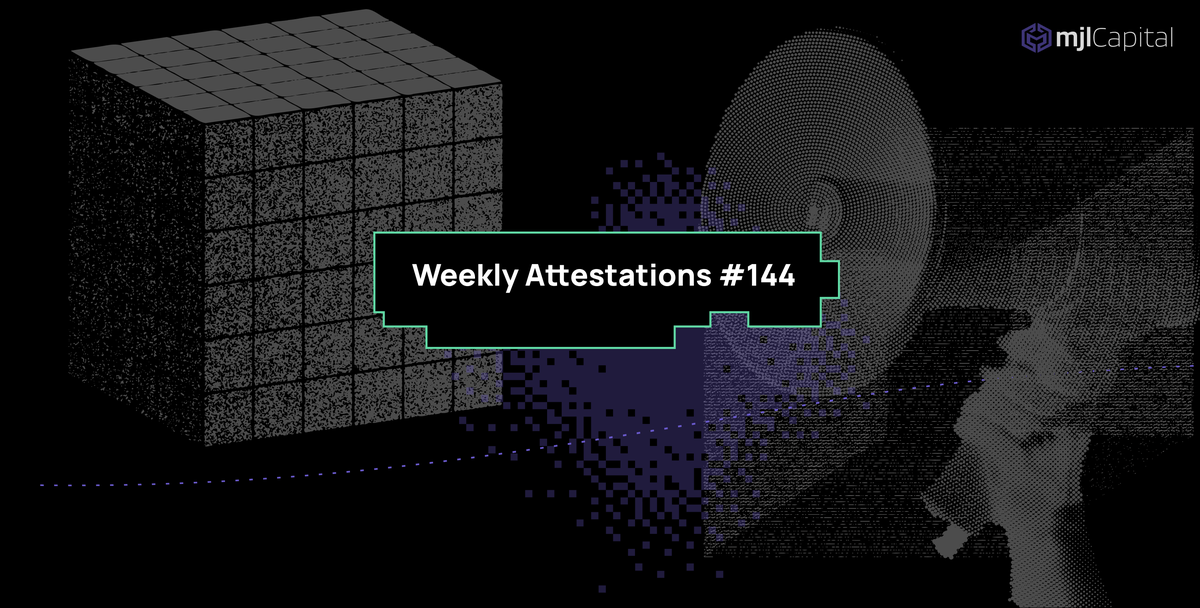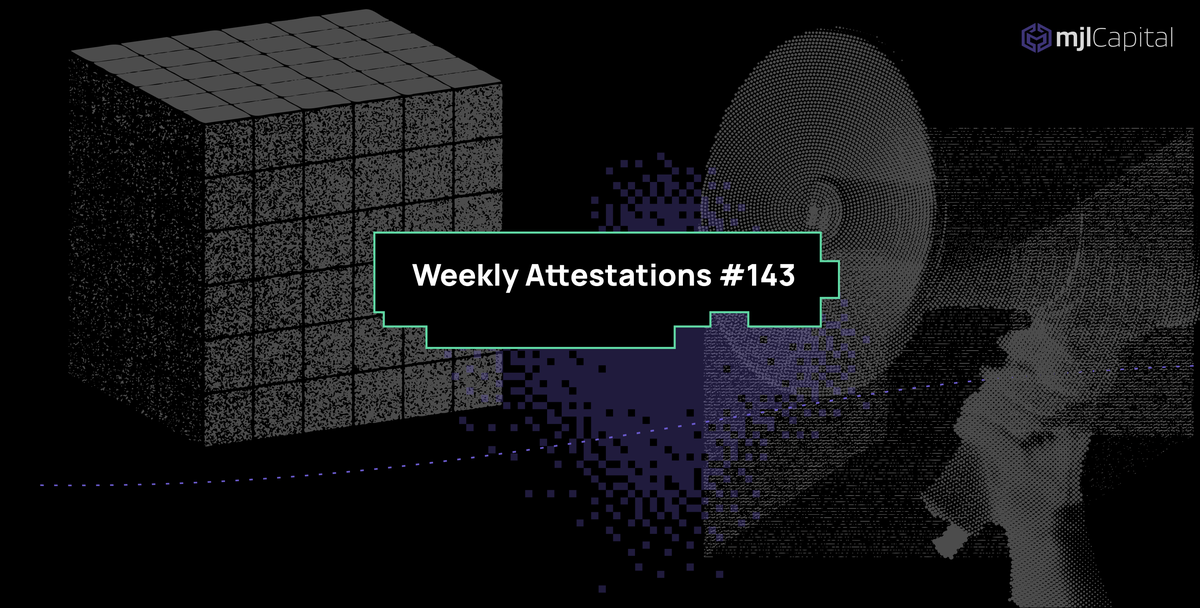Token Specific News
Ethereum Stays Proactive With EIP-7514
Ethereum has been experiencing rapid growth since transitioning to a proof of stake network. To address potential issues related to the activation of new validators, the Ethereum community has approved EIP-7514, a proposal to regulate the pace of new validator activations. This is similar to a metering light on a freeway on-ramp and aims to prevent long wait times for staking. The number of validators has significantly increased, but with the backlog resolved, the wait time for staking has reduced to six hours. EIP-7514 will further slow down new activations by around 33% and is set to be part of Ethereum's upcoming upgrade called "Deneb" in Q4 2023.

Source: Dune
LayerZero's OFT Standard Enhances wstETH Cross-Chain Interoperability Across Avalanche, BNB Chain, and Scroll
LayerZero, a blockchain interoperability protocol, has introduced an omnichain token (OFT) standard to enable the transfer of wstETH (wrapped staked Ethereum) across various blockchains, including Avalanche, BNB Chain, and Scroll. This standard simplifies cross-chain transfers by eliminating the need for minting and burning wrapped tokens. The enhanced cross-chain interoperability for wstETH is expected to expand DeFi opportunities on the mentioned blockchains. Notably, Lido, with a total value locked of $15.85 billion, has not officially endorsed this token. Many community members slammed LayerZero for front-running Lido governance, calling for the bridge to be taken down in the mean time. Concerns cited include security risks and liquidity fragmentation, with LayerZero already moving to scale back its services for Scroll due to its Layer 2 architecture.
Layer-2 Ecosystems Show Significant Growth in Daily Active Addresses, but Airdrop Chasing Raises Questions
Over the past year, Layer-2 solutions (L2s) on the Ethereum network have witnessed a remarkable increase in daily active addresses, surging from 27% of Ethereum's active addresses to over 157%. This growth can be attributed to the introduction of new L2s like Base, zkSync, and PolygonZk, which have alleviated Ethereum's scalability challenges by offering transaction costs at a mere 10% of Ethereum's fees. However, the pursuit of airdrops during their pre-token stages has introduced substantial artificial activity, complicating the evaluation of each L2's true product-market fit. To gain a clearer understanding of which ecosystems are genuinely gaining traction, it is essential to filter out Sybil addresses and focus on fundamental metrics like active addresses.

Source: Messari
Not So Fun Fungible Token
NFT marketplace volumes on Ethereum are experiencing a modest uptick, surpassing September levels, but they appear to be following a broader trend of decline since February, when significant trading activity was driven by hype around Blur's token launch. However, NFT volumes have been decreasing since May, reaching their lowest point since June 2021. Despite the overall positive sentiment in the crypto market, the NFT sector has seen limited news and organic interest, with volumes tied to the rising value of cryptocurrencies, particularly ETH. While weekly volumes for art and collectible NFTs on Ethereum have been on the rise since early October, this uptick is relatively modest compared to the broader crypto market enthusiasm.

Source: The Block
Good For The SOL
Solana's recent growth can be attributed to various new projects and developments within the ecosystem. Notable factors include the introduction of liquid staking tokens on platforms like Jito and Marinade, a resurgence in the lending space driven by MarginFi, the rise of derivatives through Drift, and the emergence of consumer applications like Star Atlas and Drip. Solana's impressive uptime record over the past several months has also played a role in attracting interest and maintaining stability. The ecosystem's potential for growth relies on a continuous influx of innovative projects and events like the Hyperdrive hackathon and Breakpoint conference, which aim to expand the range of applications and infrastructure built on Solana. Although search interest in Solana has not yet matched its price recovery, it reflects the ongoing evolution and potential for further developments within the ecosystem.

Source: Messari
MetaMask Launches New Security Alerts Feature With Blockaid
MetaMask, a popular self-custody crypto wallet, is enhancing user security through a collaboration with security firm Blockaid. They are introducing a new feature that issues security alerts to users, starting with desktop users who can opt in via the MetaMask experimental setting and add the Privacy Preserving Offline Module (PPOM). PPOM is an offline security engine that validates transactions and signatures before signing them, detecting potentially malicious activity. This feature aims to enhance security for users by alerting them to potential threats. The rollout of this feature will be staggered to ensure trust and avoid false positives, and it is expected to become a default setting for 100% of MetaMask users by the first quarter of 2024. Blockaid's dApp scanning solution can simulate and validate user interactions to determine if a dApp is malicious. The feature is also planned for the MetaMask mobile app in November.
Regulation
FDIC Gets an Incomplete on its Crypto Oversight Report Card
In March 2022, President Biden's executive order tasked the FDIC with focusing on innovation, cost savings, and risk management in the cryptocurrency sector. However, a recent review by the Office of the Inspector General (OIG) revealed that the FDIC's efforts in this domain were incomplete, emphasizing the need for a renewed emphasis on risk assessment. While the FDIC had gathered information from supervised institutions about their crypto involvement, it had not conducted a comprehensive assessment of the potential risks' significance. The FDIC issued "pause" letters to some financial institutions, advising them to halt crypto activities, but these lacked clarity and a clear timeline. The OIG recommended that the FDIC establish timeframes for risk assessments and clarify the assessment process, with the FDIC concurring and aiming to address these recommendations by January 2024.
Sharing Krak Users With The IRS
Crypto exchange Kraken will share user information with the United States Internal Revenue Service (IRS) in early November 2023, following a court order received in June. The disclosure will include user profile information and transaction histories for users who conducted more than $20,000 in transactions within a single year between 2016 and 2020. This move is part of an effort to comply with IRS regulations and reporting requirements.
Deutsche Bank and Standard Chartered Test System for Interoperability of Blockchain, Stablecoins, and CBDCs
Deutsche Bank and Standard Chartered's SC Ventures are collaborating to test a system that enables interoperability between blockchain-based transactions, stablecoins, and central bank digital currencies (CBDCs). This system, similar to the SWIFT messaging layer in traditional banking, allows these digital assets to communicate. They are conducting tests, including the transfer and exchange of USDC stablecoins, on the Universal Digital Payments Network (UDPN, a permissioned blockchain system consisting of validator nodes operated by a consortium of banks and financial institutions. This system, developed by GFT Group and Red Date Technology, facilitates transactions across various networks, from stablecoins on public blockchains to CBDCs.
Star Crossed Lovers: Gemini and Genesis (I like to think at least...)
Gemini, a cryptocurrency exchange, has filed a lawsuit against its former business partner, Genesis Global, regarding 60 million shares of the Grayscale Bitcoin Trust (GBTC) pledged as collateral for Gemini Earn product. The lawsuit is part of Genesis' bankruptcy case, and Gemini aims to take control of the GBTC shares to secure and satisfy the claims of its Earn customers, who had their funds locked when Genesis froze withdrawals last year. This legal action comes shortly after the New York Attorney General, Letitia James, filed a separate lawsuit against Gemini, Genesis, and DCG, alleging they defrauded over 230,000 investors of more than $1 billion.
Circle Halts Consumer Stablecoin Minting
Circle has announced the discontinuation of support for consumer Circle Mint accounts, with a spokesperson confirming that Circle is phasing out support for these legacy consumer accounts. This change does not impact business or institutional Circle Mint accounts. Customers who wish to mint Circle stablecoins like USDC and EURC will need to use alternative platforms. Accounts with zero balances will be closed on November 30. Circle CEO Jeremy Allaire mentioned that this change applies to a small number of individual user accounts, and they will no longer be supported.
UAE Launches Economic Free Zone for Digital and Virtual Assets
The United Arab Emirates (UAE) has introduced the RAK Digital Assets Oasis (RAK DAO), a specialized free zone aimed at digital and virtual asset entrepreneurs, ffering support and infrastructure for ventures related to digital assets, Web3, blockchain, AI, and more. While launching with non-financial activities, it may add financial activities in the future, and it enjoys the support of the UAE's Securities and Commodities Authority. RAK DAO is designed to diversify the economy in Ras Al Khaimah, one of the UAE's emirates, with partners like the HBAR Foundation and Humans.ai providing blockchain and AI support. The UAE participates in other economic free zones for digital asset firms, aiming to become a global hub for the metaverse and fintech initiatives.
Other Domestic Regulation Updates
Other International Regulation Updates
- Thai bank Kasikorn, also known as K-Bank, said it has acquired a 97% stake in crypto exchange Satang at a valuation of 3.705 billion Thai baht ($102.8 million)
- EU Reaches Agreement on Sharing Crypto Tax Data
- New UK Bill Strengthens Authorities Ability to Seize Illicit Crypto
- Hong Kong Backtracks on Retail Crypto Following JPEX Scandal
- Grayscale Launches 5 Crypto Indices with FTSE Russell
- India’s Mudrex Launches Web3 Payment Infrastructure
- Tougher UK Rules Create Boon for Compliance Advisory Business
Pain & Gain
Pain
- BUSD market cap down 90% from peak
- Hackers siphoned a total of $4.4 million worth of crypto from at least 25 LastPass users
- Biden Administration Issues ‘Sweeping’ Executive Order to Reign in AI
- FTX Selling the Pump? Estate Moves $8.6M Ethereum, Chainlink, Aave and Maker to Binance
Gain
- $326 million flowed into crypto-based funds last week
- New dYdX Chain Denominates Trading Fees in USDC
- Web3 File Management App Raises $1.5MM Pre-Seed to Take on Google
- Circle Adds Upgrade That Lets Merchants Cover Users’ Gas Fees
Important Legal Notices
This reflects the views MJL Capital LLC (“MJL”), but it should in no way be construed to represent financial or investment advice. Nothing in this correspondence is intended to constitute or form part of, and should not be construed as, an issue for sale or subscription of, or solicitation of any offer or invitation to subscribe for, underwrite, or otherwise acquire or dispose of any security, including any interest in any private investment fund managed by MJL. Any such offer may only be made pursuant to a formal confidential private placement memorandum of any such fund, which may be furnished to potential investors upon request and which will contain important information to be considered in connection with any such investment, including risk factors associated with making any investment in any such fund. Further, nothing in this correspondence is, or is intended to be treated as, investment or tax advice. Each recipient should consult their own legal, tax and other professional advisors in connection with investment decisions.
Domenic Salvo is a Managing Partner at MJL Capital, helping lead Portfolio Research and Investor Relations.




